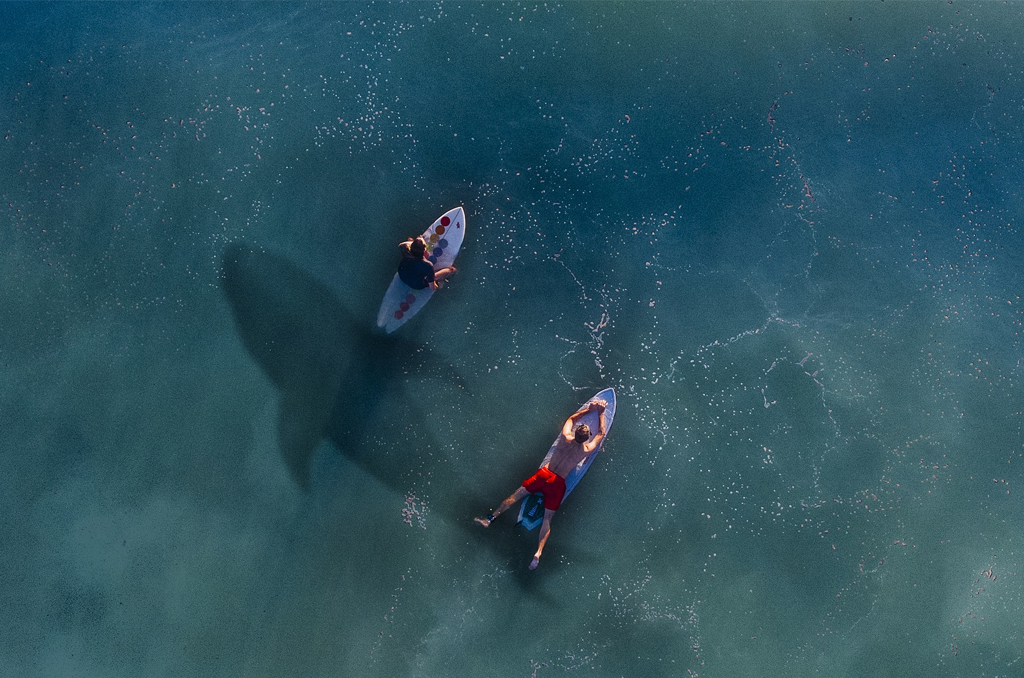Surfing with sharks… Courtesy: Pixabay – Image by Elias Sch. from Pixabay
Florida, home to warm weather, beautiful beaches, watersports, and the returning champion as the shark-bite capital in the U.S., according to the University of Florida’s annual International Shark Attack file report.
According to the report, Florida’s 16 unprovoked shark-bites in 2020 represented 48 percent of the U.S. totals and 28 percent of the total share of bites globally. While it may not sound like a lot, considering Florida has over 1,300 miles of coastline, Florida alone fell two attacks short of the second-highest country on the list—Australia with 18 bites.
Volusia County accounted for half of the state’s total bites (8), followed by Brevard (3), and single bite totals in Duval, Martin, Miami-Dade, Palm Beach, and St. Johns counties.
For comparison purposes, Volusia County has recorded a jaw-dropping 320 shark-bite cases dating back to 1882: more than any other state, county, territory, or country in the world during that same time period.
While the shark report showed Florida as a leading destination for bites, it also showed a slight dip when compared to the year before. The decrease in cases is expected to have a direct correlation with a decrease in travel due to the COVID-19 pandemic and a possible data collecting challenge due to a focus on virus cases.
The Shark Attack file focuses on unprovoked attacks, meaning no aggression or intentional action was done by the person attacked to warrant a bite. However, the report also reviews and investigates all interactions. If you were to direct your attention to the combined attacks (provoked and unprovoked), that would effectively add 39 more bites in 2020 worldwide.
“It’s a dramatic spike, but it’s not yet cause for alarm. We expect some year-to-year variability in bite numbers and fatalities. One year does not make a trend. 2020′s total bite count is extremely low, and long-term data show the number of fatal bites is decreasing over time,” said Gavin Naylor, director of the Florida Museum of Natural History’s shark research program.
An even deeper look into the data shows that most bites were related to surfers and water board sports enthusiasts (61 percent of bites). The reason for that is because aquatic enthusiasts tend to spend long periods of time in the “surf zone” and may unintentionally attract sharks by splashing, paddling, and “wiping out.”
From the seafloor, a casual beach swimmer or surfer looks like prey for any hungry shark. Because of the natural swimming and paddling motion, humans have on boards, they are often mistaken as food, but in reality, sharks do not intentionally hunt humans.
Are you interested in Florida’s nature? For stories like this and much more: Florida Insider is dedicated to educating, entertaining, and informing its readers about everything Florida. Easy to read content at the palm of your hands and covering the stories that matter.
Melissa’s career in writing started more than 20 years ago. Today, she lives in South Florida with her husband and two boys.

